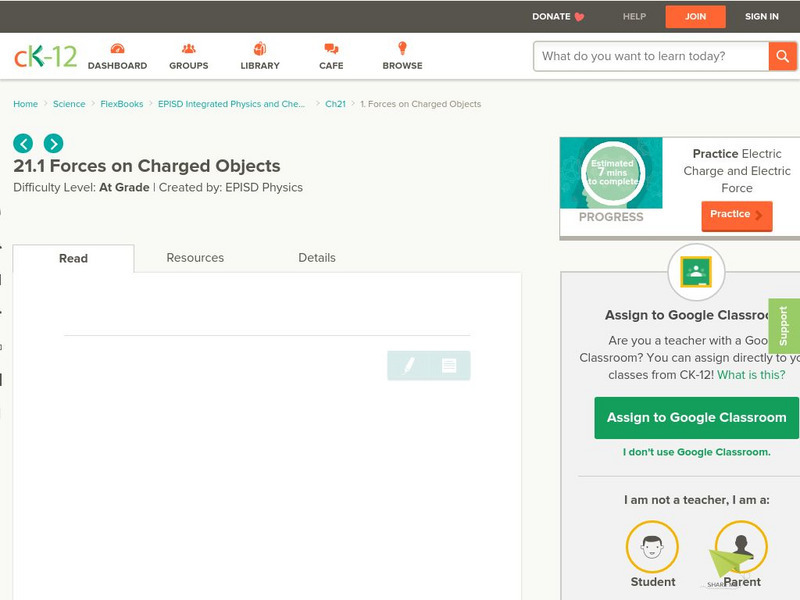CK-12 Foundation
Ck 12: Structure of the Atom
[Free Registration/Login may be required to access all resource tools.] Students learn about the important discoveries of subatomic particles, and how they led to our current understanding of the atom.
Utah Education Network
Uen: Build an Atom
Students use cereal, marshmallows, and frosting to help them understand the concept of the atom, ion, and isotope, as well as the locations of subatomic particles in the atom, the concept of strong nuclear force.
American Museum of Natural History
American Museum of Natural History: Case Study: Neutrino Observatories
Observatories allow for study of subatomic particles, neutrinos, which are found nearly everywhere in the universe are featured in this case presented by the American Museum of Natural History.
OpenStax
Open Stax: Conservation of Momentum
From a chapter on Linear Momentum and Collisions in a Physics textbook. This section of the chapter discusses the principle of conservation of momentum and the expression for it, along with examples. It then explains the role this...
TED Talks
Ted: Ted Ed: The Strengths and Weaknesses of Acids and Bases
In the chemical economy, acids actively give away their protons while bases actively collect them, but some more aggressively than others. George Zaidan and Charles Morton use the currency of subatomic particles to explain this unseen...
CK-12 Foundation
Ck 12: Forces on Charged Objects
[Free Registration/Login may be required to access all resource tools.] Students learn which subatomic particles contribute to static electricity, and determine the charge of an object based on what particles it has gained or lost.
Utah Education Network
Uen: Atomic Model Construction
Students create models of atoms then compare the various aspects of the atoms including; relative size, charge, positions of subatomic particles, and identity of the atom based on proton, neutron, and electrons with the class.
National High Magnetic Field Laboratory
Magnet Academy: Timeline of Electricity and Magnetism: 1960 1979
Computers evolve into PCs, researchers discover one new subatomic particle after another and the space age gives our psyches and science a new context.





